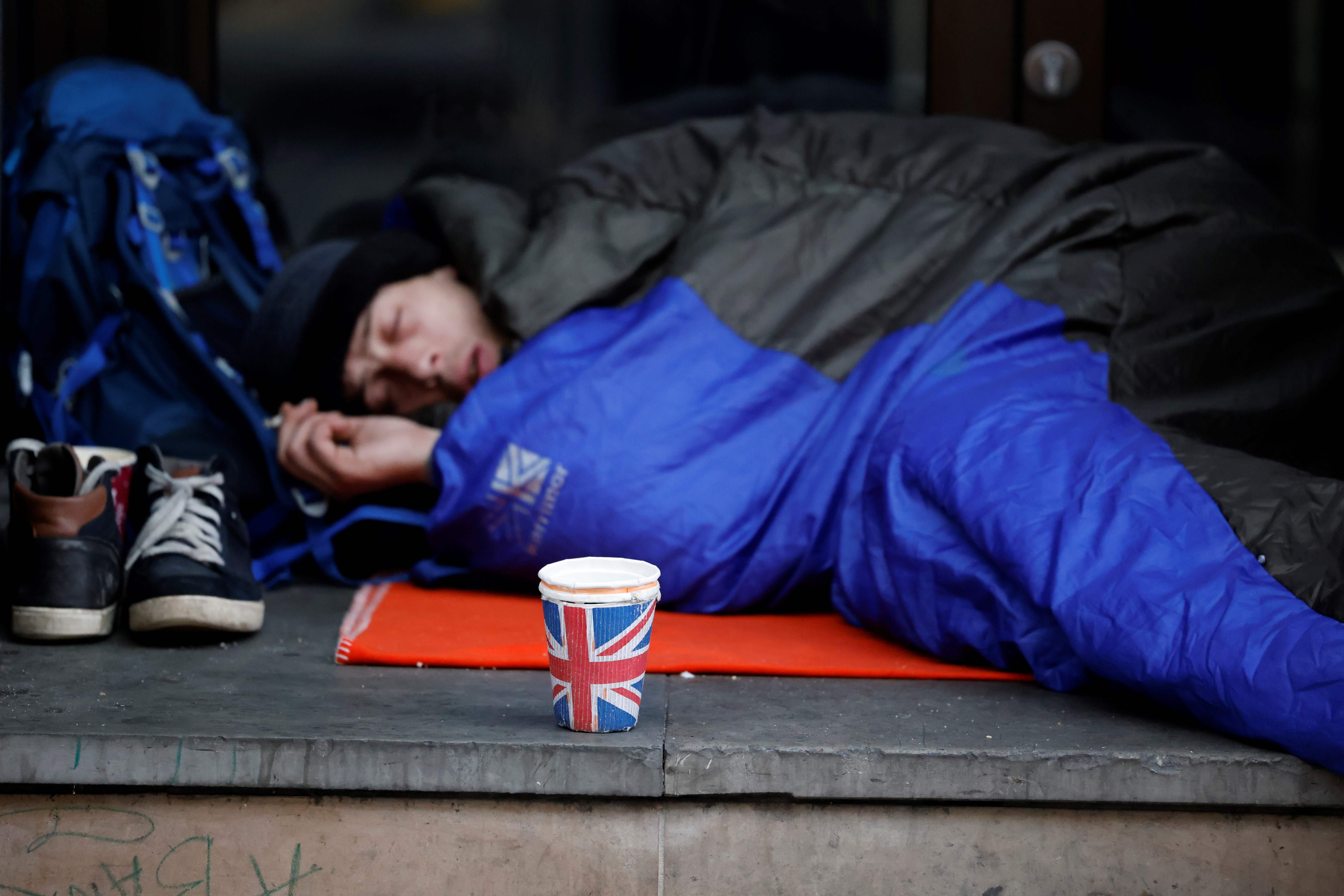Here’s how we can work towards making youth homelessness a thing of the past
Our experience at Centrepoint is that when young people are offered tailored support, they can take hold of their lives


Your support helps us to tell the story
From reproductive rights to climate change to Big Tech, The Independent is on the ground when the story is developing. Whether it's investigating the financials of Elon Musk's pro-Trump PAC or producing our latest documentary, 'The A Word', which shines a light on the American women fighting for reproductive rights, we know how important it is to parse out the facts from the messaging.
At such a critical moment in US history, we need reporters on the ground. Your donation allows us to keep sending journalists to speak to both sides of the story.
The Independent is trusted by Americans across the entire political spectrum. And unlike many other quality news outlets, we choose not to lock Americans out of our reporting and analysis with paywalls. We believe quality journalism should be available to everyone, paid for by those who can afford it.
Your support makes all the difference.Youth homelessness does not have to be inevitable, but the problem is bigger than ever.
Centrepoint’s first hostel opened in 1969 and, as we reach the end of 2020, I’ve no doubt our founders could not have imagined that youth homelessness would continue to be a growing issue across London and the rest of the country.
Last year, more than 100,000 young people approached their local authority asking for help because they were homeless in the UK. And last month, Centrepoint’s national youth homelessness helpline took a record number of calls from young people. This problem shows no sign of slowing down.
Since the onset of Covid-19, our collective focus has rightly been on the immediate. For charities like Centrepoint, who have been looking after homeless people, that has meant sourcing protective equipment, supporting hostel workers – who are key workers the same as those who work in care homes and the NHS – and protecting the young people in our care.
Much of this has been possible only because of the generosity of the public, as the government has not afforded us financial support.
Nonetheless the pandemic should not divert our attention away from a long-term vision of a society in which youth homeless is eradicated.
What I mean by this is not that no young person ever becomes homeless – but that we start with a mindset that it would no longer be acceptable in our society for a young person to spend days, weeks, or even months sleeping rough or sofa surfing, and create a system to deliver that. A system which would ensure that every young person at risk is picked up and supported before they face a downward spiral. We then need to set their feet on a path to a productive life that is good for them and gives them a stake in society. That is ultimately is good for us all.
To do this, three major things must happen. First, we must prevent young people becoming homeless. It sounds obvious, I know, but there is work to do, even if we already know the possible triggers of youth homelessness: family breakdown, leaving custody, moving on from care, eviction, domestic abuse and the breakdown of a relationship.
If we make simple and affordable changes to act early, to support all children properly in their early years, to smooth transitions, and to deal with violent and chaotic situations, we can reduce that 100,000 number significantly.
Secondly, for those who fall through the cracks, we need a system that picks them up. Many people who become homeless are already known by local councils, schools, job centres and other agencies. Through better sharing of information, we can deliver tailored support which meets the needs of each young person. Be it to improve their physical or mental health, or to support them into training and employment.
Our experience at Centrepoint is that when young people are picked up early and offered tailored support, they can take hold of their lives and turn things around very quickly.
Finally, we need homes for young people to move into when they are ready to live independently. That means more social housing, but also another part of independent living – earning. To beat homelessness, both are needed. In many parts of the country, housing is unaffordable for young people who, having turned their lives around, are taking their first steps into employment.
So, why not link together the twin issues of youth homelessness and youth unemployment by capping the rent such young people are required to pay at a proportion of their earnings?
At Centrepoint, we have recently introduced a scheme in which such young people are offered homes in which their rent is capped at a third of their earnings for a time-limited period of five years. This gives them a chance to build productive careers for themselves – potentially using schemes such as apprenticeship – without worrying about housing costs.
Over the next three years, we are determined to work alongside people of like mind to prove the potential of this model to liberate many young people from repeated cycles of homelessness, which often come despite their best efforts.
We have set ourselves the challenge of reaching the point where someone born in the next few months will not need our hostel when they turn 16.
If, by working together as a society, we do those three things, by 2037, youth homelessness could be a thing of the past. That is the future that I see.
Seyi Obakin OBE is the CEO of UK youth homelessness charity, Centrepoint


Join our commenting forum
Join thought-provoking conversations, follow other Independent readers and see their replies
Comments